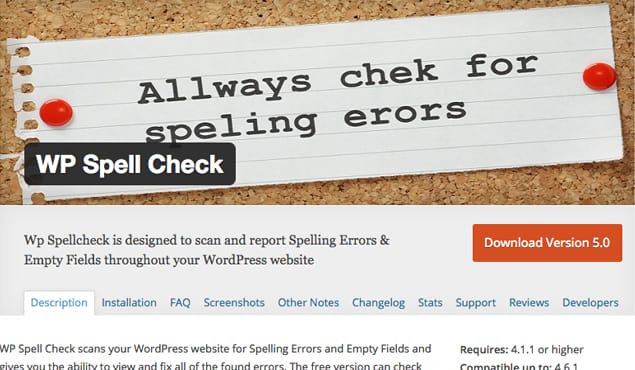Writing like a professional, in the blogosphere or anywhere, requires one main ingredient: practice.
Yes, I’ll break down the key elements to keeping your readers informed, entertained, and salivating to join your subscriber list or buy your product below. Yes, there is a certain style and tone and practice that surrounds blog writing itself, as opposed to other kinds of writing.
And yes, professionalism goes far. Really far. So far that if you write poorly and unprofessionally you actually risk losing would-be members of your blog tribe.
With all of that in mind, it is first important to recognize practice.
As Malcolm Gladwell famously posited in his book “Outliers,” it takes about 10,000 hours of diligent practice at any craft to become a master. I’m not saying that you need to become a blog master in order to write like a professional, but you will need to put in the hours. Even half of that will get you pretty far.
Practice will give you the experience necessary to always write like a professional, even when you’re tired and want to sleep, even when you’ve already written three articles that day, even when there’s very little you think you have to say.
That last one is a prominent concern in the blogosphere, where writers write to gain an audience, not necessarily because their soul compels them too.
Remember that to become a true professional, you need to practice your craft. Therefore everything you do on your blog counts as a step closer to the ultimate mastery. You’ll get to the standard professional level along the way.
I ran through a number of different qualifiers for professionalism and blog content above. Let’s dive right in.
Blogs Are Unique
The blog today is unlike any other form of writing. It’s not a journalistic piece, it’s not a short story, a novel, or an Op-Ed. You can certainly have some form of that content on your blog, but an actual blog post is something unique that has become prominent in the last decade.
The elements of a blog that set it apart are precisely the things you’ll need to practice to be professional blogger — in addition to some other, generic writing rules.
Here’s what makes a professional blog unique:
Style and Tone
Blogs are primarily casual. They use “I” and “you” and address the reader as a friend most of the time. They need to sound friendly; it’s like free, well-informed advice for an expert who’s happy you’ve stopped by their house for a chat.
We’re all too familiar with the list articles. Whether you like them or not (I happen to feel like a plague of lists has descended), they are there. What most people don’t realize is that even articles that don’t have lists in the title, or formal lists, actually contain lists.
Look at this list area I’ve created, that you’re reading right now. It’s a list of things that makes blogs unique. This is classic in blog posts, and so ingrained we don’t think about it often.
Use lists as a foundation for structure in a professional blog post.
Niche
All articles have to be about a specific subject, but blog posts take it one step further. They operate from within that niche, expand upon that niche, and talk to you as if you love, need, or support that niche.
Blogs have made us all able to focus in on a specific aspect of our lives for a short while, digesting information to then take out into the world. This is markedly different from, say, a news publication that finds experts to post about a topic. The Huffington Post is not about any one thing, it’s about everything. QuickSprout, on the other hand, is about internet marketing.
Formatting
This goes along with the list idea, but is more expansive. Professional blog articles tend to be structured in a certain way. They have a title, headings, subheadings, bulleted and numbered lists, images, and hyperlinks. Certain blogs have their own style that is more refined, but those are the basics you want to hit with every post. It engages the reader and keeps them moving.
Images and text
We live in an increasingly image driven society. The human brain simply loves images, and the blog world knows that. The ratio of images to text can vary a lot, but the professional bloggers won’t have a single article without an image. Even if it’s one image; even if it’s a video that’s being transcribed. A well-composed, professional blog post has images and text. (Go look for yourself.)
Links
There are two types of linking, and both are necessary if you want to produce professional content.
The first is external linking.
This is when you embed hyperlinks into your blog post that go to other websites. These links typically go to other articles that contain relevant content. This is absolutely necessary.
If you’re writing an article on bees and briefly mention that the bee population is dying off, it’s best to hyperlink to a legitimate news article about it. This lets your readers follow your research if they want, but mostly stay on your page.
The second is internal linking.
This is when you place a hyperlink on your blog post that points to another page on your website. This, also, is critical. Professional bloggers know the extent of their work and are able to easily and quickly show it to new (or old) readers. You want to have at least one internal link per post, but more is better (to a point).
Guest Posting
I’ll be brief on this subject because it doesn’t actually pertain to your writing, but to someone else’s. Most blogs these days (even the huge ones) have guest posts. They don’t necessarily have a lot of them, but at some point every blogger gets a big name (or a little name) to write a great article. It’s a part of the tradition.
Developing Your Style
Beyond the generic elements above is the very specific, very “you” driven aspect of blogging. Who are you? What’s your deal? What’s your approach to the world, your subject, and the way you plan to shape your content?
This has to do with practice, but it also has a lot to do with intention. You can still follow the above rules and inject a huge dose of variety into your blog posts. This is often what bloggers become known for, and what sets them apart.
People want a blogger who is more than just facts; they want personality. They want consistent personality, including the frequency and regularity of blog posts, the introductions, the conclusions, the kinds of witty or jokey or philosophical insights that are unique to you and you alone.
The ugly truth about blogging is that the content you’re writing about probably has been written about already. It’s probably just a Google search away. If not, if your content is absolutely, completely original, than you should break a market with ease, whether or not you are completely professional in the delivery of that content.
That’s not usually the case. Usually you have to present yourself as well as your information, and that’s what takes you to the next level.
Commenting in that Style
This includes interacting with your readers through comments. A professional will always comment back and participate on their own blog (duh), but remember to present your persona in your comments.
It’s a bit like playing a character on a T.V. show — you have to remember your lines, the way you move. If that’s exactly who and how you are, perfect. If you created a slightly different version of yourself for the blog world, that’s fine. Just stick to it.
Offering Extra Goodies
Blogs today are all about the swag. Whether it’s free eBooks, contests for winning physical things, live Hangouts with you (the blog author), or some other elaborate offer, you need to bring something other than your content to the table.
The thing is, this relates heavily to that blog content you need to write. Figure out a way to tie these offerings right into your content.
You will get a certain level of response by email blasting a new eBook. You’ll get way more response by including a portion of the eBook in a normal blog post, then informing your audience there’s a whole lot more where that deliciousness came from, and linking them to it.
Doing this well comes down to planning. Offering goodies and tying your content into those goodies means you have to have some sort of content calendar — an idea of when you’re going to release new blog posts, new promotions, new guest posts, and any other new stuff.
Being professional in the blog world means doing this in the background and making it seem flawless. Tease your readers that something big is coming, then deliver.
Those Other, Standard Professionalisms
The above is all about the blog post in specific. You will need that to write blog content like a professional, but you’ll also need basic writing experience. Here are some basic tips to keep in mind when writing to maintain your professionalism.
Spelling
So, freaking, simple. I can’t tell you how many blog posts I have read that have glaring spelling errors. A few here and there is fine because editors miss them, writers miss them, and it’s really hard to publish content as fast as we do and catch all the spelling mistakes.
But when words are misspelled left and right, it’s obvious. So are the truncated, copy/paste fiascos; the fake words; and the lack of the correct word. This drives most readers to the edges of sanity.
Grammar
Even though you can take a more casual tone with blog writing, and occasionally include incomplete sentences, grammar remains important. Maintain and present the concept that you write extremely well, so well that you’re breaking the rules knowingly. (Hint: Actually know when you’re creating a run on sentence, an incomplete sentence, or some other strange demon of a sentence. Don’t fake it, know it.)
This sort of confidence in writing helps a reader to know that yeah, you’re pretty good, and yeah, you break the rules sometimes.
Authority
You might ask, “Isn’t authority kind of the same as professionalism?” Yes, yes it is.
However, you need authority in your writing, in your tone, to give off a level of professionalism. Writing without authority means using phrases like “I heard that” or “some people have told me” or “from my limited experience” or “I’m not the greatest expert, but”…
It’s using phrasing that automatically implies you actually aren’t the person to be talking to about a given subject. Then, I ask, why are you writing about it?
This is obviously a fine line — don’t lie and say you have experience with things you don’t just to prove you’re an authority. Don’t belittle your knowledge with that sort of language though. Put it in a perspective that still makes you sound like an authority, because that’s how a professional does it.
All of those slightly unsure phrases could be turned to sure phrases. If you are sure that a specific area of your topic is not known to you, say so. You’re still an authority on what you don’t know, and then you can point readers in the direction of someone who is.
Professionalism
Being a professional takes practice and time. You don’t need to be one the second you start writing, but if you use the skills above you will certainly sound like one. Then, the second someone reads your work, asks you a question, and you answer correctly, you kind of are one.
Amazing how that works, right? Keep everything above in mind when penning those new blog posts, and ask yourself, who am I as a blog writer? A consistent answer will make your work shine.
 ContentPowered.com
ContentPowered.com










